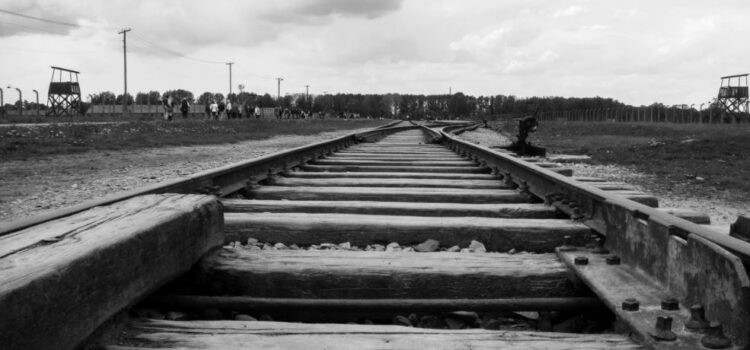

This article is an excerpt from the Shortform book guide to "The Tattooist of Auschwitz" by Heather Morris. Shortform has the world's best summaries and analyses of books you should be reading.
Like this article? Sign up for a free trial here .
Why were Lale and Gita separated in The Tattooist of Auschwitz? What happened at the end of Auschwitz?
In 1945, the Russians started to close in to bring the end of Auschwitz concentration camp. The women, including Gita, were rounded up and sent away. Meanwhile, Lale is sent to another camp. They didn’t know if they would ever see each other again.
Continue reading to learn what happened to Lale and Gita at the end of Auschwitz.
The End of Auschwitz
Months go by with no sign of the Russians. A cold fall turns into a colder winter. The year changes to 1945, and the prisoners struggle as another dire year of life at the camp looms before them. The never-ending stream of new arrivals ceases, and Lale and the crematorium workers find themselves without work. It’s starting to feel like the end of Auschwitz.
Victor and Yuri, as well as their crew, no longer come to the camp. Nothing new is built. In fact, the Germans have started shipping prisoners out of Auschwitz-Birkenau. No one is sure where they’re headed. Gita and Cilka are in charge of processing the paperwork, but it doesn’t state the destination.
Not long after, Baretski tells Lale that Leon is no longer at the camp. Lale demands to know what happened to him, but Baretski warns that if Lale keeps up the questions, he could find himself in the same boat. Leon’s disappearance does something to Lale. He feels a new fighting spirit enter him, and he tells Baretski that he looks forward to watching Baretski’s world crumble around him. Baretski grips his holster and tells Lale to get inside where it’s warm. The cold is clouding his judgment.
A few weeks later, Gita dashes to Lale’s block in the snow. She tells him that the SS are running around in a panic at the administration building destroying documents. Lale tells Gita to find her friends and stay in the block, then he runs to the building to investigate. He runs into a female SS worker and finds out that the Germans are going to empty the camp starting tomorrow. The Russians are getting closer and so is the end of Auschwitz.
Lale rushes to Gita’s block with this news. He walks right in, her kapo nowhere to be found. He finds the women huddled with fear. He tells them the news and says they should stay in their block until further notice. Before he leaves, he delivers personal messages to each of Gita’s friends. He thanks Dana for helping to keep Gita alive all the times when she was ready to give up. He thanks Cilka for her help and tells her she is the strongest person he knows. When he turns to Gita, she refuses to let him speak. He will not say goodbye to her, she says. She’ll see him tomorrow, period.
As Lale leaves the block, he looks at the group of women. All young, all taken when they were barely women. Their futures, once full of promise and hope, have been taken. Even if they are set free, they will never be able to lead a normal life. He wishes them well and leaves.
The Road Out
The commotion at the camp dies down, and Lale is able to fall asleep. But he wakes up in the middle of the night to gunshots and loud voices. He walks outside and sees thousands of women lined up in rows awaiting a fate no one seems to have any information about, not even the SS. It’s pandemonium. Lale rushes through the rows searching for Gita. At last, he sees her near the main gate. Only Dana is with her, and they’re both crying.

———End of Preview———
Like what you just read? Read the rest of the world's best book summary and analysis of Heather Morris's "The Tattooist of Auschwitz" at Shortform .
Here's what you'll find in our full The Tattooist of Auschwitz summary :
- How a man used tattooing skills to stay alive at Auschwitz-Birkenau
- How Lale Sokolov fell in love in these unusual circumstances
- How Lale goes from concentration camp to Russian prisoner before finding freedom






